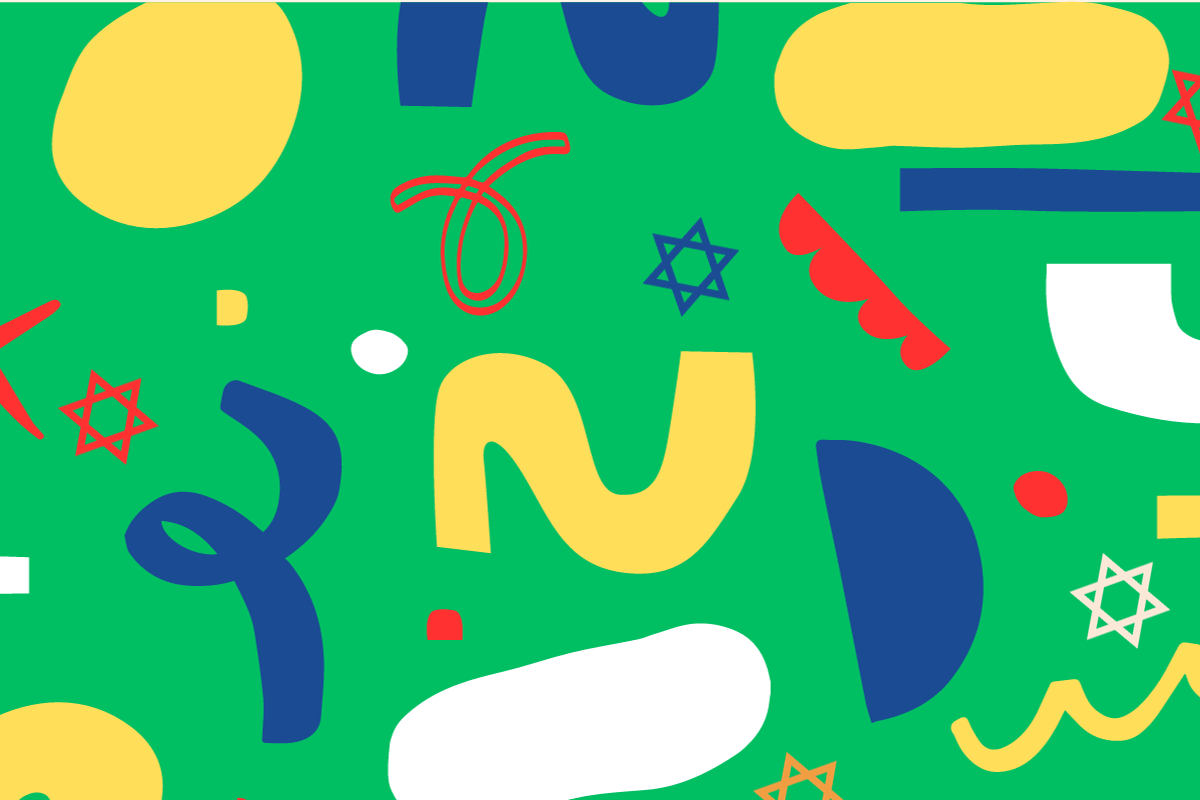As I sit in my office, a song is wafting through the air. Past the bulletin board showing all the discoveries our 4-year-olds have made in their explorations of maps… Past the classroom where children are making rainbow pancakes… The song comes to me from one of our threes rooms where they are singing about a dinosaur who wants to celebrate Shabbat. In a few moments I will head to our Sanctuary and lead a rousing, 20-minute school tradition: the All School Shabbat. This moment in time is everything to me — and, in my Jewish community, I believe it is everything to our future selves, too.
As the director of early childhood education at a synagogue in downtown Brooklyn, I spend plenty of time leading tours of prospective parents and the bulk of my speech is about the learning children do here. We talk about how their feelings and their inspirations are honored in the way our highly educated teachers address curriculum. We share how well our little ones do when they leave us for kindergarten and beyond.
Only a portion of what I say is specifically about Judaism and its relationship to early childhood. But anyone who has had the distinct honor to run a Jewish preschool knows there is something extra we can offer. What does it mean to have a place that is distinctly Jewish before it even needs to be defined? I think it means a great deal. What does it do for a child to “live Jewish” in her classroom when she is still learning to speak, take turns and listen? It creates a lasting core of well-being for a child who will grow and experience the benefits of carrying what they learned into their lives beyond preschool.
The world has a lot to say about what it is to be Jewish. We all manage input from mainstream media that may treat Judaism as something “other.” If you are like me and grew up outside of New York or another thriving Jewish community, you know what it was to be the kid with the menorah in a sea of jingle bells and Santa suits at Holidays Around the World Day, invited to tout “Jewish Christmas” by (I assume) well-meaning teachers. In recent years, especially, many of us who never experienced overt antisemitism were reminded of what many of our grandparents experienced and never forgot — even as they created wonderful lives in the U.S. And since last month, of course, we’ve all been affected by the terrorist attack on Israel and the ensuing trauma of war. But as the sun goes down every Friday, we fill our sanctuary and join together in community knowing that — now more than ever — we need to continue to live as Jews.
So, when parents ask me about the benefits of a Jewish preschool, I start with the peaceful sensation of having a chance for Jewish living to be “just the water we swim in.” How lovely to have a time in life when it is just not such a big deal to be Jewish. It’s just the way we do it! And what do we do? We live life joyfully and meaningfully.
In a Jewish preschool, the seasons are marked by holidays infused with meaning. In preschool, the message of Yom Kippur is not exactly one of atonement — rather how to pay attention to what one can learn and to feel empowered to improve. On Hanukkah, we talk about what it means to stand up for oneself and rebuild what is ruined. What can we do with our own desires to knock down a friend’s work and how can we make things right again? As we celebrate Tu Bishvat, we ask how can we best take care of our surroundings — both in a single room and throughout the world. How can we fix what breaks and sustain what lives? And, every Friday, how can we learn to find peace within, and help others see what is beautiful in the everyday: some yummy juice; a piece of challah; tracing three circles in the air to bring in the peace of Shabbat; peeking through our fingers to see the glow of the candles. We appreciate life; we savor it. (And then we fingerpaint.)
Jewish early childhood education now has a long tradition of progressive, research-based pedagogy. And those of us who are dedicated to it know that there are many things particularly Jewish about preschool. Judaism’s affection for the everyday happiness we experience through our senses, the encouragement to be mindful with each meal and even with each daily transition, and the sheer relishing of learning as something sweet, important and joyful — these are all things that preschool teachers strive to create for young children.
The feeling of living Jewish in preschool is a sustained, supported confidence that to be a person who is learning is just right. For parents and students alike, the feeling of life after Jewish preschool is knowledge that their identity as Jewish people is secure and not dependent on what the world may say. Now more than ever, giving children this particular gift is something we can embrace for our children.








